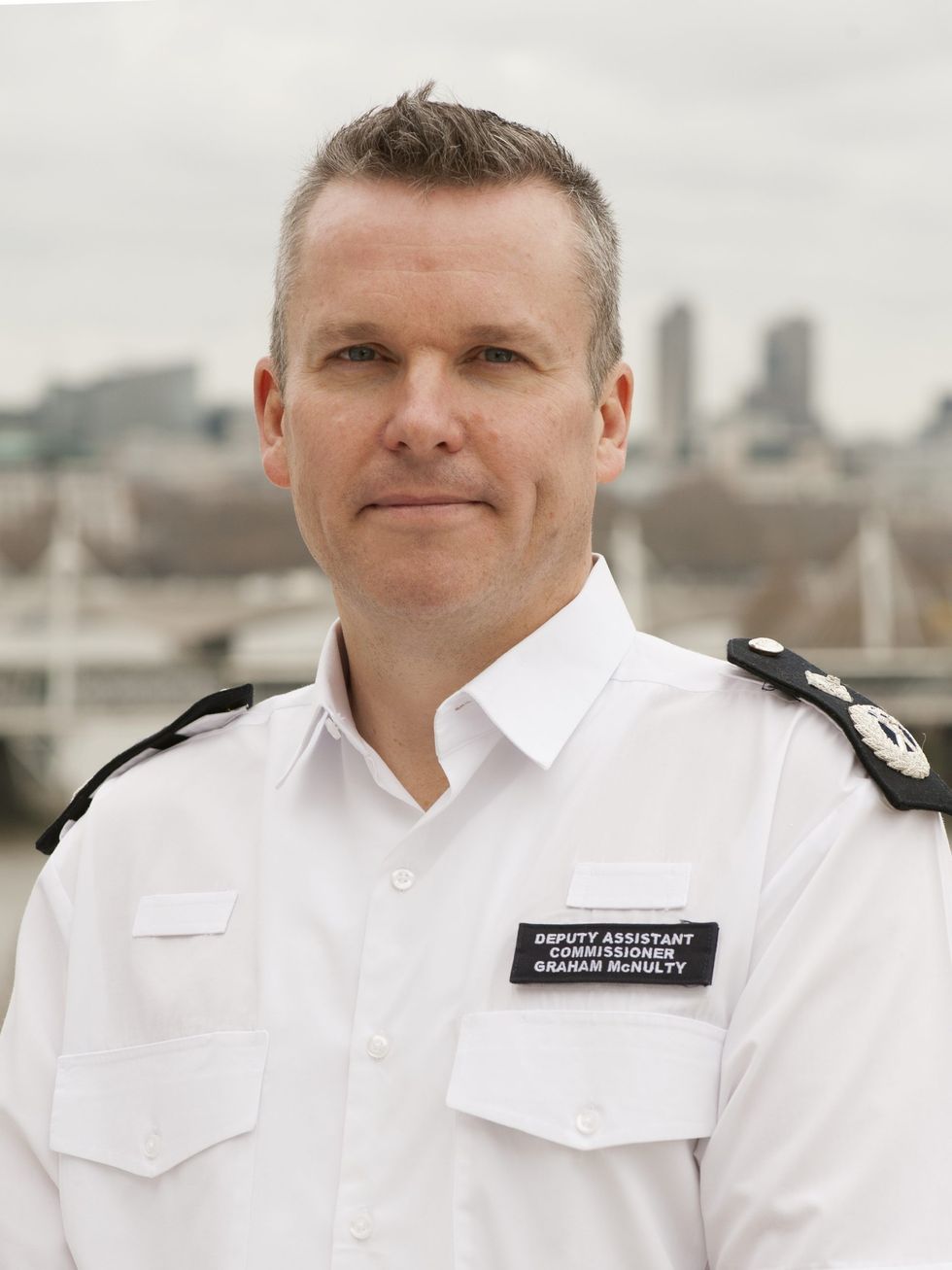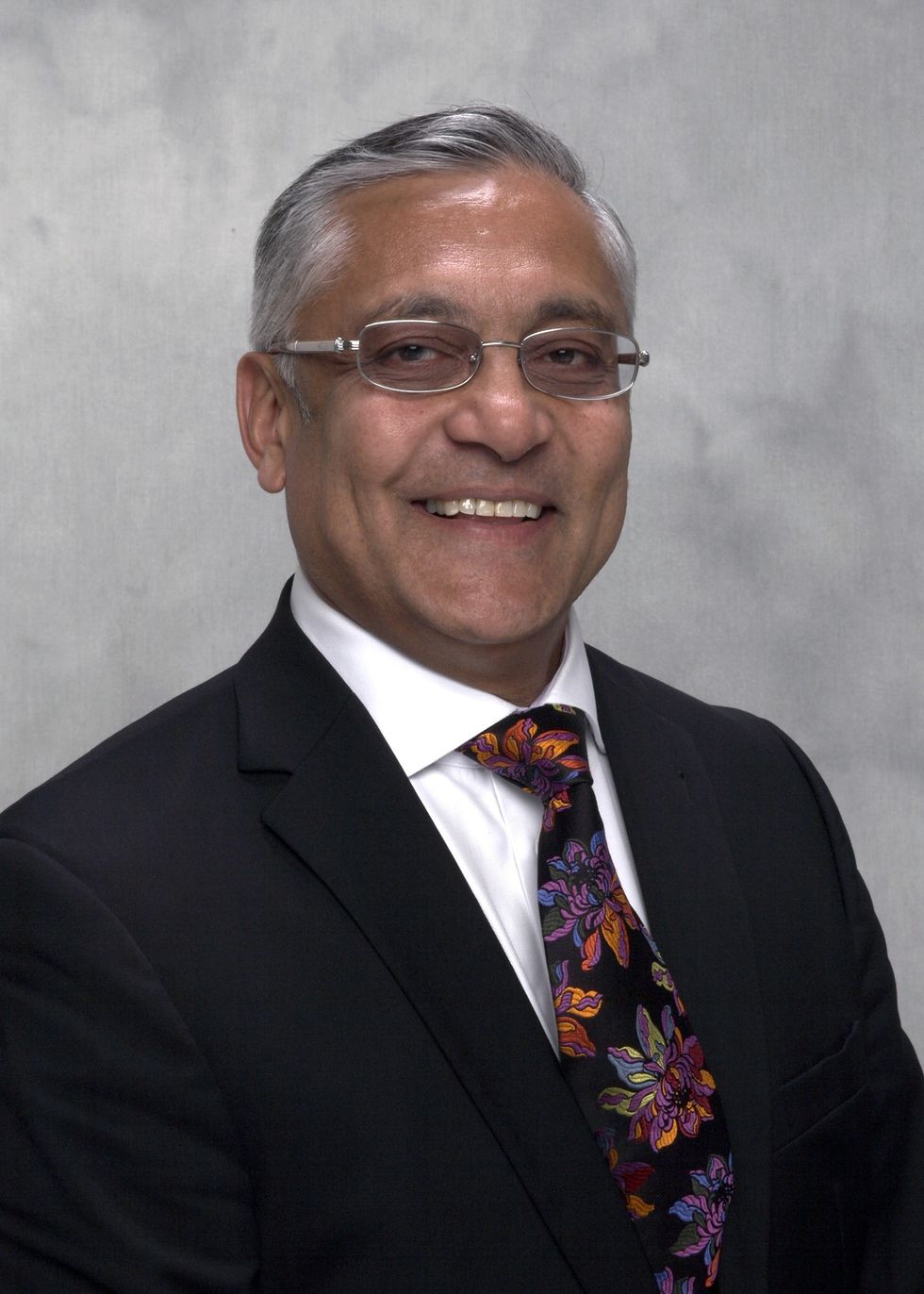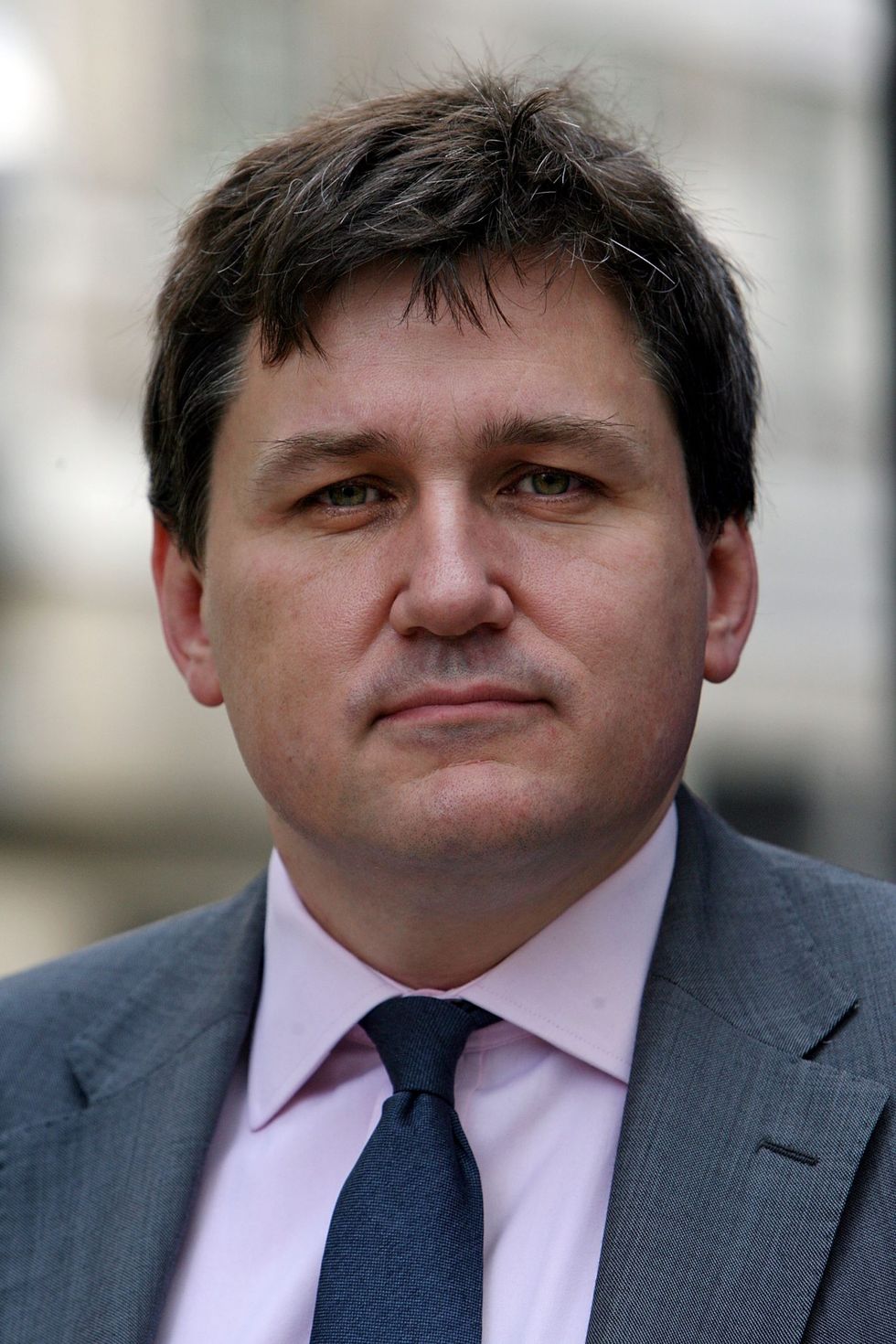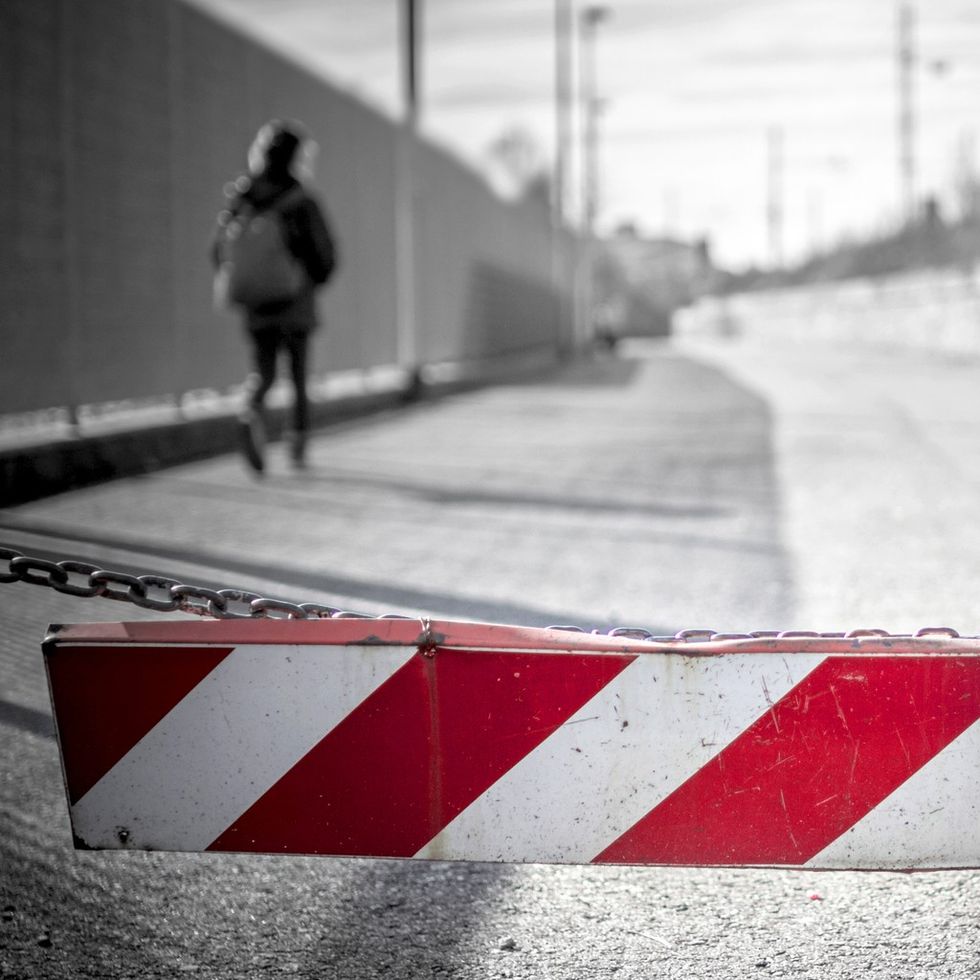Exclusive
By Barnie Choudhury
A senior police chief has warned south Asian drug gangsters “we will get you”.
Eastern Eye can exclusively reveal that 1,710 Asians are currently in jail for drug related crimes – an overrepresentation of three times their number in the nation’s population.
In an exclusive interview, the Met’s head of serious and organised crime, deputy assistant commissioner Graham McNulty, warned that forces were coming after drug gangs in every community.
“We're on the front foot. We've got a good methodology to identify the gangs,” said the national police chiefs’ lead on county line gangs.
“Nearly 1000 charges in a year against county lines, gangs, and that's just London, not the rest of the country. We're coming for them, and that's my message. If you're involved in county lines, sooner or later that knock at the door will be us, we will get you and we're after you.”

The figures, obtained after an 11-month investigation using the Freedom of Information Act and speaking to current and former high-level drug dealers, include those who are in prison awaiting trial.
“I'm in the Met police, and our number one objective, the commissioner has made very clear, is we've got to bring down violence,” McNulty said. “The reason we're focusing on county lines is we know it generates a lot of violence, and if we can take down another county line, if we can stop another young person from being exploited, we will do it.”
Increase in violence
Last week Eastern Eye revealed that Asian children as young as seven were being groomed by county line gangs to carry drugs and guns.
Our investigation suggests there has been a generational change in the way organised and county line gangs operate in south Asian communities.
Current and former high level drug dealers have told Eastern Eye that:
- Asians have become increasingly violent over the past 25 years. Where once black and white dealers would rob them of their drugs, they are now hitting back.
- the kingpins will not get their hands dirty, and they have "an army of foot soldiers, enforcers, armed with knives and guns" ready to exact revenge and punishment.
- so called "community leaders" continue to brush the problem under the carpet. Everyone, they said, knew dealing and trafficking took place, but the communities are helping the trade by hiding the problem and not working with the authorities to take on the criminals.
One former level three drug dealer, Abdul Qadir*, said, “There are different tiers. The street sellers are called “road men” and they sell bags of heroin, crack, what have you, for £10 or £20 a time within their own communities. It’s a 180 degree turn over the past 20 years.
“There’s no izzat (honour) or sharam (shame), fear or guilt anymore, that’s gone out of window. They’re using women for prostitution and kids as young as seven. There’s no level of integrity. It’s all a quick rich scheme.”
Qadir said that south Asian communities would “never guess” the identities of some of those at the top of the tree.
“The more educated ones are the Mr Bigs in this multi-billion-pound industry. You would never guess who they were. They launder the money through fronts like restaurants, legitimate businesses, and even the Imams are in on it, they use their mosques to groom and pass cash through. It’s more difficult with Covid. But once lock down’s lifted expect to see another rise in dealing and laundering.”
Numbers in jail
The Ministry of Justice data shows prison numbers as of 30 June, the mid-annual points, for the past three years, including those on remand.
It suggests that even during the first lock down, substantial numbers of Asians were being locked up. The number rose between 2018 and 2019, and they dipped slightly in 2020.
Former east London gangster, Raheel Butt, has turned his life around. From carrying drugs to being an enforcer, imprisoned after breaking a man’s jaw, Butt now wants to turn children away from a life of crime.
At his London gym, The Compound, which he has funded himself but needs financial support, Butt told Eastern Eye that the authorities are simply not paying enough attention to the problem in south Asian communities.
"Asian gangs exist in the county lines, these gangs are very, very much prevalent," said Butt. "They've been around for a long time. Where does heroin come from? So, when we know that it's coming from south Asia, it takes a certain bit of organisational skills to bring it into this country.
"We understand the distribution chains, we understand the wholesale market, we understand all the way up from the local dealer who work the child that's been nominated to carry these drugs. And then do the debt bondage if they lose the drugs, or they're set up deliberately. All of this is very much in plain sight. But it takes a level of accountability, by local authority, to accept these factors."
Disproportionate numbers
The data we obtained in our investigation shows that Asians make up 13 per cent of those in prison for drug offences. That is more than three times the proportion of Asians according to the 2011 Census, which is 10 years out of date.
Lord Patel of Bradford pioneered research into drug using and dealing among south Asian communities.

He said, "My research in the mid-1980s showed that the authorities and services were missing one crucial fact, Asians should not be ignored when we look at how to tackle drugs in society. That was what was happening.
"These figures show that they are overrepresented in jail for drug related crime, and that should be a wakeup call to the police, the Home Office, and most importantly our south Asian communities, we need to do something to recognise, question and tackle this pernicious trade and its devastating consequences."
Evidence based arrests
Both the government and the police said that they do not target specific communities.
MPs and experts have told Eastern Eye that the authorities must collect, collate and analyse the figures in the same way rather than 43 forces “doing their own thing”.
But deputy assistant commissioner McNulty said the police focused on the evidence.
“In all honesty, we monitor the figures, because we want to understand whether there's an over representation or an under representation, but they're available to me,” he said.
“We focus on the evidence, what we're seeing, what we find, what we get back. In particular, what we've been focusing on in recent months is the individuals who are exploited.”
He defended the way the police currently operated.
“When we investigate the county line, we have no idea of the ethnicity of the individual behind that line,” said the Met’s head of serious and organised crime. “What will happen is a force will give us a telephone number ending, say 1234, and that telephone number is dealing drugs in their force area.
“But often what we will then do is we'll be able to identify in London that number, but I should say that number is normally pay as you go unregistered number. So, we have no idea when we commence our investigation where it will end up.”
Home Office questions
Last week, we revealed that the Home Office refused to respond to our questions to address the specific problem of drug related crime among south Asian communities, and that it had no strategy to deal with it.
Instead, the police minister, Kit Malthouse told Eastern Eye, “The drugs trade is a poison in our society, devastating lives and destroying communities.

“We have invested £148 million to cut crime and protect people from the scourge of illegal drugs, including £40 million to tackle county lines and drugs supply.
“We are determined to confront the issue of drugs across the UK and deliver for the public by making our streets safer and protecting those most vulnerable.”
But our story drew comments on social media.
Consultant, Kiran Sahota Tweeted, “The situation with young south Asian kids in gangs is real. I work in this area and the stories we hear. Some parents don’t want to know and some are in so deep there is no way out.”
‘Criminalising a generation’
Others who also work with south Asian children, trying to turn them away from a life of drug crime, are concerned about the way the police and schools operate.
Former high level drug dealer, Abdul Qadir*, told Eastern Eye that the system was systemically, structurally and institutionally racist and warned about criminalising a generation of south Asian children.
“The cops stereotype the kids. The schools stereotype the kids. If they’ve been suspended from school, get into gangs, get caught once, then they’re labelled for life. These Asian kids don’t get second chances. They’re on the police radar, and if anything goes wrong, they go for the usual suspects. It starts at school.
“Every day I go to schools which detention rooms, and I say to the kids, ‘Aren’t you challenging why you’re here?’ And they say, ‘No, I’m used to it now.’ The cops, the teachers, the system, they’re criminalising a generation.”

The Birmingham Perry Barr MP, Khalid Mahmood, agreed that suspension from school did lead to gang crime.
“The key attention at the moment is in education,” said the shadow defence minister. “If you look at educational attainment rates, particularly amongst Asian boys, they are significantly lower than most of the other communities.
“The big problem in schools is exclusions. School exclusions are becoming higher and higher. And in private academies, you have the risk of that it rises because they don't want them there. There's no real provision for those children to get a reasonable and proper education.”
*We have changed this former dealer’s name to protect his identity.
Next week, how police forces responded to freedom of information requests concerning county line gangs. And a senior imam tells us why south Asian communities can no longer deny the culture of drug crime taking place under their noses.
Abul Qadir*, from the West Midlands, was involved in the drugs trade for 20 years, rising to the third highest tier. He still speaks to and tries to rescue young south Asian dealers who have been trapped in a life of crime.
“Asians never used to cooperate with any group. In prison, when I was involved, they were mainly Muslims and fewer Sikhs. Now, they don’t want to follow their parents into the shop trade, so they sell and take drugs.
“There are different tiers. The street sellers are called “road men” and they sell bags of heroin, crack, what have you, for £10 or £20 a time within their own communities. It’s a 180 degree turn over the past 20 years. There’s no izzat (honour) or sharam (shame), fear or guilt anymore, that’s gone out of window. They’re using women for prostitution and kids as young as seven. There’s no level of integrity. It’s all a quick rich scheme.
“The more educated ones are the Mr Bigs in this multi-billion-pound industry. You would never guess who they were. They launder the money through fronts like restaurants, legitimate businesses, and even the Imams are in on it, they use their mosques to groom and pass cash through. It’s more difficult with Covid. But once lock down’s lifted expect to see another rise in dealing and laundering.
“What you have to understand about county lines is that back in the day cities reached saturation point from the number of dealers to customers, so they needed to branch out. If I went from Keighley to Manchester, or even Keighley to Batley, I’d stand out like a sore thumb. The local police clock new people, and that when you’d get caught. Now it’s become more sophisticated. They’re using young Asian kids more. Even if they get caught, they won’t get arrested if they’re under-10. And they’ll keep their mouth shut because they know their families will get hurt.
“When it comes to organised gangs, well the heroin still come mainly from Afghanistan through Pakistan, and cocaine are Albanian gangsters. So, when you go to the docks, where they come in, you have white people who run the docks and the Asians pay them to turn a blind eye, they don’t do their job.
“All the gangs are linked up now, working with each other. Asians may not be at the top tier, yet, but they can buy bigger amounts. They run the girls who’ll either be prostitutes to feed their habit or they’ll cut up cook [make class A drugs]. The girls are addicts, and all they’re doing is getting enough to get their next fix.
“I know one Pakistani girl from a good family was groomed to sell. She was nine or 10 when she started. But all over the country there are Indians, Pakistanis, Bangladeshi girls all escorts and dealing.
“Kids as young 10 to 14 are hooked on all kinds of Class A. They entice you. They know you want to make cash. So, they offer you drugs, they take you to a flat, and there’ll be drugs, alcohol and pretty, pretty women. They’re yours. Free. But the price comes later. When you’re addicted and can’t say no, that’s when they turn you. It’s so enticing you join them. They’re called trap houses. I’d say 80 per cent are male and 20 per cent female.
“As you climb up the ladder drivers will drive you around to deliver drugs and collect cash and the business wash the money. Back in the day, Asians didn’t touch crack cocaine, MDA, crystal meths. Now anything goes.
“It is much more violent than it was in my day. You can’t threaten them. Black and white people used to rob them 20 years ago. Not now. They’ll chop you up. They have real muscle now. May not be Asians either. It could be white or black blokes. They’ve got guns at home. Any incidents they can deal with. You just don’t touch them. As I say, much more organised. Young kids, 20, 30, 50 aged about 14 to 18, all have seven to eight phones encrypted. Their role is to bring the money in - £2m a year easy, I’m hearing.
“We hide everything, don’t we? Mental health, sexual abuse, so why should drugs be any different? The parents put work over families. We call it hidden home in Hindu, Sikh, Muslim communities. The mothers collude and the mothers deny. The fathers work all day, and they come back and say my son or daughter can’t do this, shouldn’t do this. The mother and father fight in front of the kids, they hate their parents, and go further into drugs and gangs. We’re lost.
“Take two brothers who have kids. One brings up the son or daughter and they’re well educated and become successful as doctors or lawyers. They have the big house, the big car and great lifestyle. The other isn’t as successful educationally or professionally, but their kids say, “Dad, don’t worry, I can bring in five grand a week. Don’t worry about it.” So, it’s a competition of status and lifestyles. The greed factor, I want the biggest house, the biggest house the best car, the prettiest girl. The kids want that and thy don’t care how they get or who they go over to get it. These are the young kids today. It’s money, control, power.”
“I know kids whose families are loaded, and their parents buy them one grand watches, designer clothes, but they don’t spend time with them or they’re violent towards them. One kid who was groomed and dealing told me he wouldn’t have if his dad, once in his life, said he loved him and hugged him.
“The cops stereotype the kids. The schools stereotype the kids. If they’ve been suspended from school, get into gangs, get caught once, then they’re labelled for life. These Asian kids don’t get second chances. They’re on the police radar, and if anything goes wrong, they go for the usual suspects. It starts at school. Every day I go to schools which detention rooms, and I say to the kids, ‘Aren’t you challenging why you’re here?’ And they say, ‘No, I’m used to it now.’ The cops, the teachers, the system, they’re criminalising a generation.”
*We have changed this former dealer’s name to protect his identity.



















